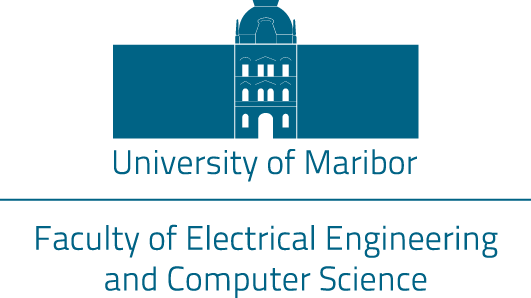O PROJEKTU
Šifra projekta: N2-0087
Project duration: 1. januar 2019 – 31. december 2021
Project content
After decades of R&D, proton exchange membranes fuel cells have entered niche markets in portable, transportation and stationary power applications that require high reliability and efficiency. However, high material costs have prevented the widespread use of these cells, which resulted in increased attention to the alkaline ethanol fuel cells (DAEFC), whereby catalysts containing precious metals can be used together with widely available ethanol. One of the important layers in DAEFC is the anion exchange membrane (AEM), which, according to the method of ionic conductivity within the structure of polymers, is classified into two types: the polyelectrolytic membrane and alkali-doped polymer membranes. Unfortunately, their high costs, unavailability, and unsolved engineering issues such as high ethanol crossover rates, and instability in an operating fuel cell environment, still delay DAEFCs commercial production. Chitosan and other renewable biopolymers (i.e. waste from shrimps, crabs..) have advantages in the production costs and environmental aspects. Besides, the use of non-Pt catalysts, in DAEFC offers a cost benefit compared to the acidic proton exchange membrane, which makes DAEFC a potentially low cost technology compared to the acidic membrane in the fuel cells. The most effective catalyst for ethanol oxidation reaction and the oxygen reduction reaction in alkaline media have proved palladium (Pd-(Ni-Zn)/C) and iron-cobalt (FeCo) based catalyst systems. Low cost, wide availability, large surface area, high electrical conductivity, and stability in harsh environments, makes carbonaceous materials interesting, as catalyst support and metal free catalysts.
Within our project, we will perform some innovations and this will be i) functionalized the surface of the GO nanoparticles with quaternary ammonium groups, ii) nitrogen doping, we will effectively adjust the properties of graphene and can be able to use it in various applications, III) we will use graphene and functionalized graphene as carbon support material, which will improve the reaction kinetics and stability of the DAEFC electrodes as well as IV) the performance of the newly prepared electrodes combined with graphene based composite nanomaterials will be analyzed in the test cells.
The aim of project is to meet the growing global energy demand and the excessive use of fossil fuels, where the development of renewables is crucial for sustainable growth, has focused on fuel cells, which are identified as one of the key technologies for the clean energy industry in the future. There are three critical technical barriers for fuel cells, which limit their commercialization: performance (activity), durability (stability) and cost. Herein, we will attempt to improve the efficiency of fuel cells and inorganic exchange membranes. In addition, we will focus on improving the long-term stability of the membrane, also designing a catalyst with low noble metal loading and otherwise, we would use abundant and inexpensive elements to replace expensive Pt for anode catalyst development.
PROJECT PHASES:
The project is divided into several work packages (WP):
WP1: Functionalization of graphene oxide (GO) and reduced graphene oxide (rGO) nanosheets
WP2: Design of stable and flexible nanohybrid membranes
WP3: Membranes characterization
WP4: Development of membrane electrode assemblies with advanced electrode materials
WP5: Project coordination & Information
PUBLICATIONS (1.1.2019-1.1.2020)
Original scientific article
- Cermenek, B., Genorio, B., Winter, T. et al. Alkaline Ethanol Oxidation Reaction on Carbon Supported Ternary PdNiBi Nanocatalyst using Modified Instant Reduction Synthesis Method. Electrocatalysis 11, 203–214 (2020).
- Samsudin AM and Hacker V. Preparation and Characterization of PVA/PDDA/Nano-Zirconia Composite Anion Exchange Membranes for Fuel Cells. Polymers (Basel). 2019 Aug 26;11(9). pii: E1399. doi: 10.3390/polym11091399.
- V pripravi.
Professional article
- BOŽIČ, Mojca, STANA-KLEINSCHEK, Karin. GO DEFC – Graphene oxide based MEAs for the direct ethanol fuel cell. EPNOE newsletter. no. 47, nov. 2018, http://www.epnoe.eu/?q=aboutepnoe/newsletters. [COBISS.SI-ID 21890838])
Published scientific conference contribution abstract
- HREN, Maša, OSMIĆ, Azra, CERMENEK, Bernd, HACKER, Viktor, STANA-KLEINSCHEK, Karin, BOŽIČ, Mojca. Laminated nanofibrillated cellulose nanopaper with chitosan polymer layer as anion exchange membranes for ethanol fuel cell applications. V: Abstract book. 6th EPNOE International Polysaccharide Conference, 21st-25th October 2019, Aveiro, Portugal. [COBISS.SI-ID 22731030])
- HREN, Maša, STANA-KLEINSCHEK, Karin, BOŽIČ, Mojca. Composite anion exchange membranes from modified nanofibrillated cellulose and chitosan polymer for ethanol fuel cell applications. V: PINTAR, Albin (ur.). Zbornik povzetkov = Book of abstracts. 25th Annual Meeting of the Slovenian Chemical Society, 25.-27. september 2019, Maribor, Slovenija. Ljubljana: Slovensko kemijsko društvo, 2019. Str. 138. ISBN 978-961-93849-6-1. [COBISS.SI-ID 22680086])
- HRIBERNIK, Silvo, BOŽIČ, Mojca, GORGIEVA, Selestina, DEVALLANCE, David Brian. Design of bio based carbonaceous fibrous structures as catalysts in fuel cells. V: CIGOLOTTI, Viviana (ur.). European Fuel Cell: conference & exhibition. 8th European Fuel Cell, Piero Lunghi Conference, Naples, 9-11 December 2019. Rome: ENEA Italian National Agency for new technologies, energy, and sustainable economic development, 2019. Str. [259-260] (efc19159). ISBN 978-88-8286-386-9. [COBISS.SI-ID 22916118])
PROJECT GROUP:
Project leader (ARRS): Assis. prof. dr. Selestina Gorgieva. (SICRIS)
Participating research organizations and researchers:
University of Maribor, Faculty of Electrical Engineering and Computer Science
Assist. prof. dr. Selestina Gorgieva (SICRIS)
Dr. Silvo Hribernik,. (SICRIS)
Azra Osmič (UM), mag. kem.
Maša Hren (UM), mag. inž. kem. teh
University of Ljubljana, Faculty of Chemistry and Chemical Technology
Assist. prof. dr. Boštjan Genorio (SICRIS)
Mark Kozamernik
Graz University of Technology, Institute of Chemical Engineering and Environmental Technology
Prof. dr. Viktor Hacker, Eng. Dr. techn. (TUGRAZ)
Sigrid Wolf
Michaela Roschger
Asep Samsudin
Project is funded by Slovenian Research Agency



